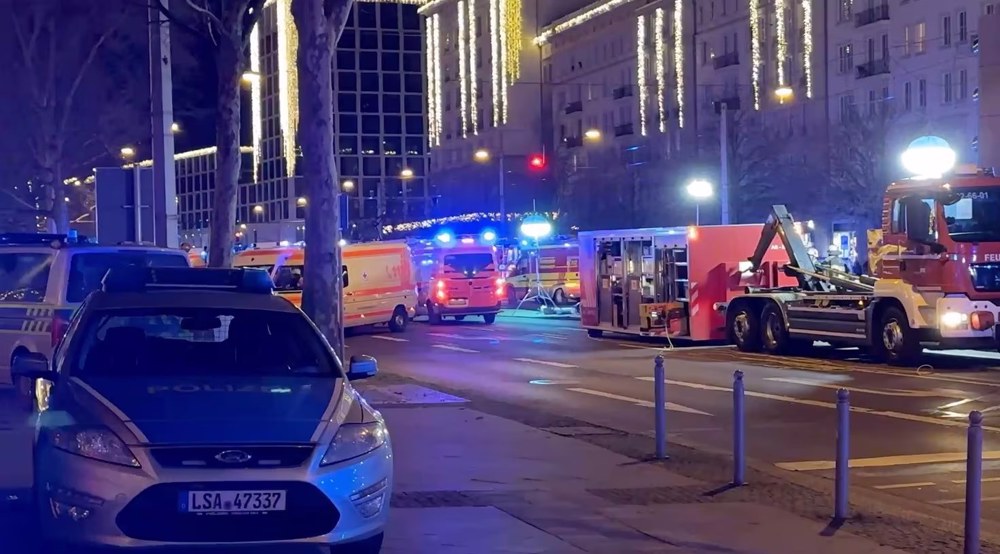In wake of Chemnitz protests, Merkel says Germany no country for 'hate in streets'
Chancellor Angela Merkel of Germany has denounced what she described as "hate in the streets" in the wake of violent far-right protests that degenerated into attacks against foreign-looking people in the eastern city of Chemnitz.
Merkel told journalists in the capital Berlin on Tuesday that “hate in the streets" had no place in Germany.
"What we have seen is something which has no place in a constitutional democracy," Merkel said.
"We have video recordings of (people) hunting down others, of unruly assemblies, and hate in the streets, and that has nothing to do with our constitutional state."
Following the fatal stabbing on Sunday of a 35-year-old German man allegedly by a Syrian and an Iraqi, thousands of protesters marched in Chemnitz for two straight days. Some angry demonstrators chased down people they believed were refugees.
At least 20 people were injured on Monday as pyrotechnics and other objects were hurled by both far-right demonstrators as well as anti-fascist counter-protesters in the city.
Footage showed German police officers struggling to prevent far-right protesters breaking through police lines. Angry protesters were seen throwing bottles and other objects at the police.
The protesters also performed Nazi salutes and chanted, "The national resistance is marching here!"
The Chemnitz police acknowledged that it had mobilized few officers to tackle the fiery demonstration.

The eastern state of Saxony has long been a hotbed of anti-refugee sentiment. The far-right Alternative for Germany party received almost a quarter of the votes in Chemnitz last year.
The opposition Green Party has accused Interior Minister Horst Seehofer of fanning the flames of anti-refugee sentiment in recent months, urging him to consider resignation.
Konstantin von Notz, a Green lawmaker said the violence in Chemnitz recalled events in other parts of eastern Germany during the early 1990s, when authorities failed to stop far-right mobs from attacking refugees.

The Spiegel Online, one of the most widely read German-language news websites, said, "Of course history is not repeating itself, but that a far-right mob is on a rampage in the middle of Germany and the authorities are overwhelmed, is reminiscent of the situation during the Weimar Republic."
In a press briefing in Berlin on Tuesday, Foreign Minister Heiko Maas voiced concern that Germany's reputation could suffer as a result of violent far-right protests.
"We have to keep in mind that these are pictures that will be seen abroad," Maas said. "But I don't think that what was seen there even comes close to reflecting the reality in Germany. I firmly believe that the majority of people living in this country want an open and tolerant country."
Chancellor Merkel’s decision in 2015 to open the doors to over a million refugees, many fleeing war in the Middle East, triggered the rise of anti-immigration parties across Europe, which has faced its worst refugee crisis since World War II. The continent has been hit since 2014 by an unprecedented influx of refugees fleeing conflict-ridden zones in North Africa and the Middle East, Syria in particular.
Yemeni army strikes Israeli military sites with drones
‘Clock ticking’: UNRWA slams unjustifiable killing of children in Gaza
BP to be sued in Britain for supplying oil to Israel
VIDEO | Press TV's news headlines
Israeli strikes on north Gaza hospital ‘extremely dangerous, terrifying’: Director
VIDEO | Yemen targets Tel Aviv with Palestine 2 missiles
Pezeshkian: Iran resolved to complete North-South Transport Corridor
VIDEO | Iran-Syria: For Resistance









 This makes it easy to access the Press TV website
This makes it easy to access the Press TV website